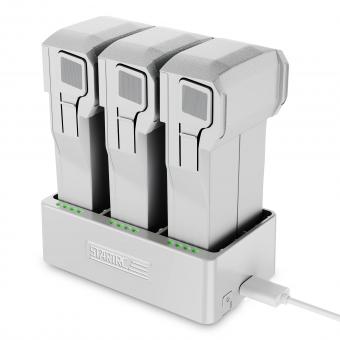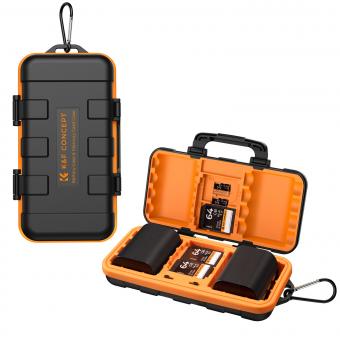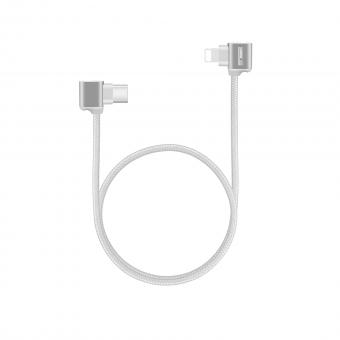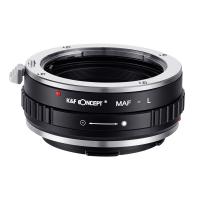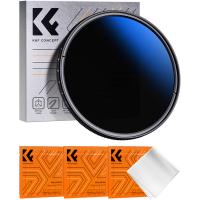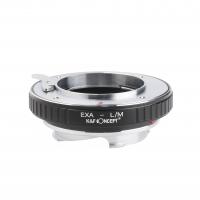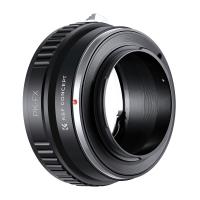What Type Of Batteries For Blink Camera?
As the world of home security continues to evolve, the convenience and peace of mind provided by smart security cameras like the Blink Camera have become indispensable to many homeowners. However, these high-tech devices require consistent and reliable power sources to function optimally. One of the most common inquiries from Blink Camera users revolves around what type of batteries are best suited for their devices. In this article, we will delve into various battery options for Blink Cameras, their advantages, disadvantages, and provide actionable insights for making the best choice.
Understanding Blink Camera Battery Requirements

The Blink Camera is designed to be wireless, which means it relies heavily on batteries for its operation. The original Blink Camera models, as well as the XT and XT2, come with two AA 1.5V Lithium batteries - a choice driven by the need for longevity and reliability.
Types of Batteries Suitable for Blink Cameras

1. Lithium AA Batteries
2. Alkaline AA Batteries
3. Rechargeable AA Batteries (NiMH)
Lithium AA Batteries
Pros:
- Longevity: Lithium AA batteries have a long shelf life and offer extended operation times. In standard Blink Camera usage scenarios, a pair of lithium batteries can last up to two years.
- Temperature Resistance: They are known for their stable performance across a wide temperature range, from extremely cold to hot conditions. This makes them ideal for outdoor cameras.
- High Energy Density: Lithium batteries can store more energy than their alkaline counterparts, providing more power to your Blink Camera.
- Lightweight: They are lighter than alkaline and rechargeable batteries, which can be beneficial for fitting in compact spaces without adding much weight.
Cons:
- Cost: Lithium batteries are generally more expensive than other types. The initial investment may be higher, but it could be cost-effective in the long run due to their longevity.
- Disposal: Special disposal methods are required for lithium batteries because they can be harmful to the environment if not disposed of properly.
Alkaline AA Batteries
Pros:
- Availability: Alkaline batteries are readily available in most stores.
- Cost: They are usually cheaper upfront compared to lithium and rechargeable batteries.
- Non-leakage: Reputable brands provide alkaline batteries with non-leakage properties which are advantageous in maintaining the integrity of Blink Cameras.
Cons:
- Shorter Lifespan: Alkaline batteries tend to have a shorter life compared to lithium batteries, possibly lasting only a few months with Blink Cameras.
- Performance: They do not perform well in extreme temperatures. This makes them less ideal for outdoor cameras.
- Voltage Drop: Alkaline batteries experience a gradual drop in voltage as they discharge, potentially leading to less reliable performance in the long term.
Rechargeable AA Batteries (NiMH)
Pros:
- Cost-Effectiveness: Over time, rechargeable batteries can save money as they can be recharged multiple times.
- Environmental Impact: Using rechargeable batteries is more eco-friendly than disposing of single-use batteries regularly.
- Performance: Modern NiMH (Nickel-Metal Hydride) batteries provide reliable performance and can sustain high-drain devices like Blink Cameras.
Cons:
- Initial Cost: The upfront cost is higher due to purchasing both the batteries and a compatible charger.
- Maintenance: Requires regular recharging and potential replacement after several charge cycles.
- Voltage: NiMH batteries typically have a lower voltage (1.2V) compared to alkaline and lithium batteries (1.5V), which may not provide the same level of performance consistently.
Comparing Battery Performance in Real-world Usage

Battery Life: When considering battery life, lithium AA batteries stand out due to their long operational life and stable performance. Users particularly appreciate not having to change batteries frequently, as this reduces the hassle and ensures continuous surveillance.
Temperature Tolerance: For Blink Cameras placed outdoors, the ability of lithium AA batteries to function in extreme conditions is unmatched. Alkaline batteries might work fine indoors in moderate climates but aren’t reliable for outdoor usage under harsh temperature swings.
Cost: Although lithium batteries have a higher upfront cost, their long shelf life and superior performance can make them more economical in the long run. Alkaline batteries, while cheaper initially, may require frequent replacements, thus accumulating higher costs over time. Rechargeable NiMH batteries can be cost-effective, but the ongoing need to recharge and eventually replace them can be a downside.
Recommendations

Best for Longevity & Performance: Lithium AA Batteries
For those who prioritize longevity and reliable performance under all weather conditions, investing in lithium AA batteries is the best choice. Users who do not want to constantly worry about changing batteries will find this option most convenient.
Best for Indoor Use and Budget-Conscious Users: Alkaline AA Batteries
If your Blink Cameras are situated indoors in stable temperature environments and you prefer a budget-friendly option, alkaline AA batteries might suffice. They are easy to find and come with a lower initial investment.
Best for Eco-Friendliness and Long-term Savings: Rechargeable NiMH Batteries
For environmentally conscious users who don’t mind the occasional recharging, NiMH rechargeable batteries offer a good balance between cost and performance. Make sure to invest in high-quality batteries and chargers to maximize the benefits.
Practical Tips for Blink Camera Users
1. Monitoring Battery Life: Regularly check the battery life through the Blink app to avoid unexpected power loss, ensuring your home remains secure.
2. Mixed Battery Use: Avoid mixing battery types (e.g., lithium and alkaline) in your Blink Camera, as this can affect its performance and possibly damage the device.
3. Stock Spare Batteries: Keep spare batteries handy to ensure that you can quickly replace them without any downtime in your security monitoring.
4. Battery Disposal: Dispose of used batteries responsibly by following local regulations. Many places offer recycling programs for used batteries, minimizing environmental impact.
In conclusion, selecting the right battery for your Blink Camera depends on your specific needs and circumstances. While lithium AA batteries are highly recommended for their longevity and performance, alkaline and rechargeable NiMH batteries also offer viable alternatives depending on your priorities. By understanding the strengths and weaknesses of each battery type, you can ensure your Blink Camera operates efficiently and continuously, providing the security and peace of mind you deserve.

